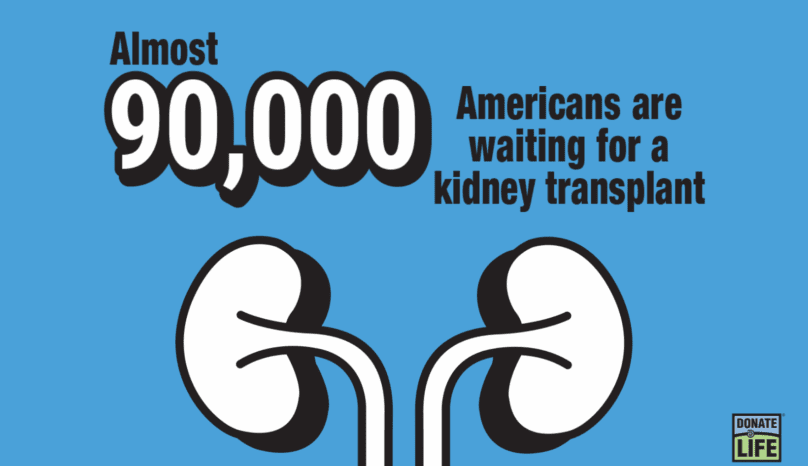Advances in genetic testing make it possible to unlock opportunities for life-saving early detection and prevention of chronic kidney disease (CKD), and eventually kidney failure. Raising awareness and expanding access to testing for a gene variation that puts men of African descent at higher risk for chronic kidney disease is a powerful way to fight health disparities.
In fact, approximately 31% of Americans waiting for a kidney transplant are African American, even though African Americans account for only 13% of the national population. Turning the tide against this health disparity – and helping to keep people healthy and off the kidney transplant waitlist – is one of the goals of Mid-America Transplant Foundation’s partnership with SSM Health St. Louis University Hospital.
Special genetic testing can show if a person has variations in this gene, but this type of genetic testing isn’t part of routine care and can be quite expensive when administered within a full panel of genetic testing. The result is that the gene variant in African American men often goes undetected until they show signs of chronic kidney disease – when it may be too late to reverse kidney damage.
This gene variant, related to apolipoprotein L 1 (called APOL 1), occurs more frequently among those of African descent, with 98% of individuals who have two variants of this gene being African American men. This genetic factor places them at a much higher risk for developing hypertension and end-stage renal disease. It also makes them disproportionately more likely to one day need a kidney transplant.
Dr. Krista Lentine, and the team at SSM Health Saint Louis University Hospital and its clinics, are conducting a study to give at-risk patients an APOL 1 genetic test, with the hope that learning whether they carry this genetic variant helps patients better manage their kidney health before they develop kidney disease. Mid-America Transplant’s Foundation has contributed $715,000 to this work over the past six years because we believe that life-saving early detection can prevent the need for kidney transplants.
“So far, we have enrolled 125 patients in this study, and we hope that it will continue to grow so we can support patients with preventative kidney health measures, such as lifestyle and medication changes,” said Dr. Lentine. “Ultimately, our goal is to reduce the need for kidney transplants among African Americans in our region.”



